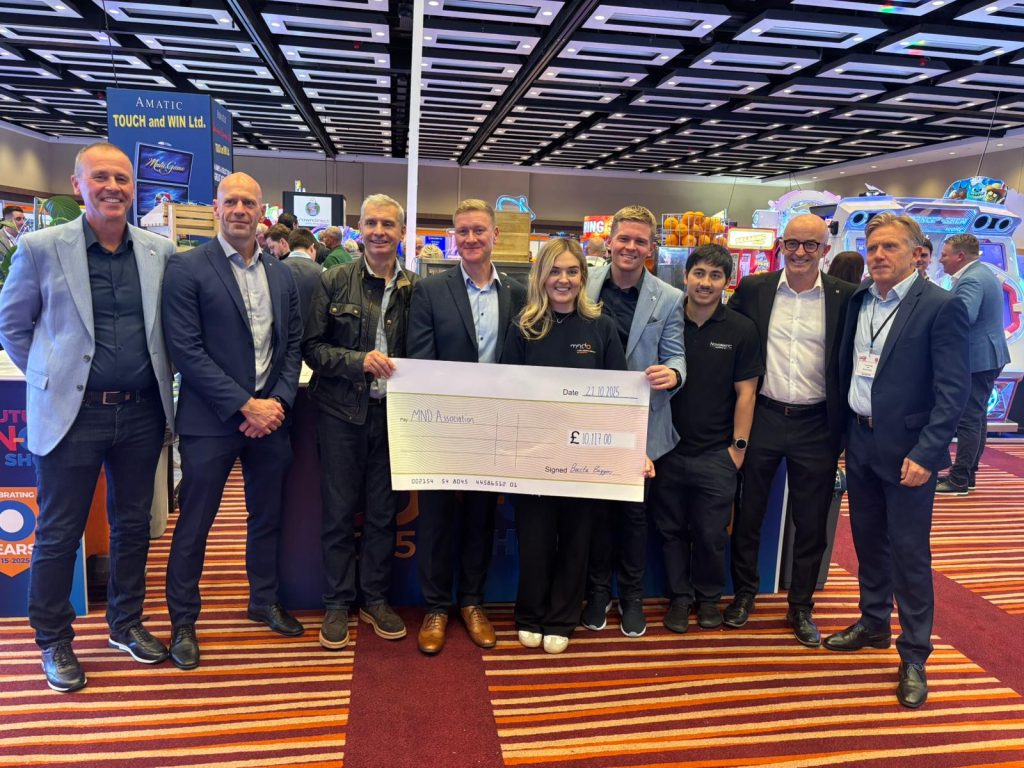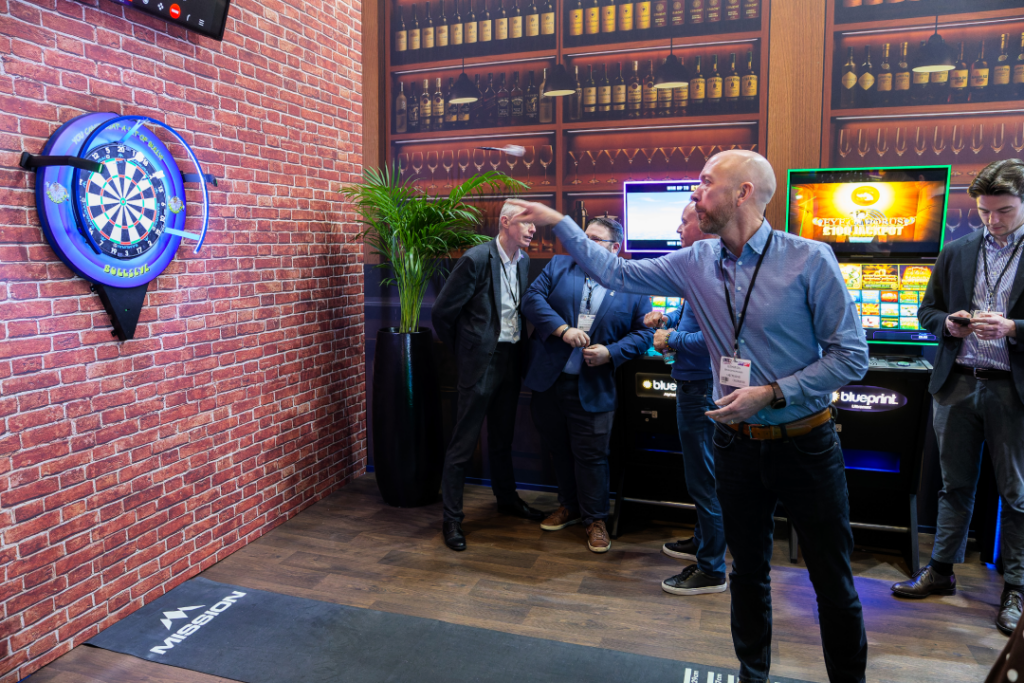The Bacta Baggers took the opportunity offered by ACOS to hand a cheque for over £10,000 to the Motor Neurone Disease Association (MND). The latest presentation to the charity which works to raise awareness and fund medical research into the devastating disease takes the total raised by the ‘Baggers’ to an amazing £25,000.
The Bacta Baggers represent a close-knit group of friends and colleagues working across the amusements and low stake gaming sectors. With a passion for adventure and the great outdoors the Baggers mission is to undertake a major fundraiser every two years. The first initiative saw the team complete the Brecon Beacons to Cardiff Cycle challenge along the Taff Valley which was followed last year by a gruelling two-day trek through the Scottish Highlands.
The team, featuring Andy Tipple (Blueprint Operations), Kevin Temple, Rob Bennet and Paul Abbot (Novomatic UK), Andy Bower (Inspired Technology), Sean Young (Wexel), James Fergusson (Blueprint), Josh Beard (Novomatic UK) and Andy Bullock (Innovative Technology), tackled two of Scotland’s most iconic routes — the Munros of Ben Lawers and Beinn Ghlas, followed by the spectacular but demanding Ring of Steall in the Mamores range.
The Ring of Steall, famous for its knife-edge ridges and unpredictable terrain, tested every ounce of stamina and teamwork. The experienced climbers took on the role of Sherpas, guiding their colleagues across An Gearanach’s steep descent which included wading through freezing waterfalls.
In a joint statement, the Bacta Baggers reflected on the challenge and the group’s dedication to supporting the work of the Motor Neurone Disease Association: “The solidarity, friendship and sheer guts shown by everyone was remarkable. This was about industry friends coming together to do something meaningful.
“It was more than a test of endurance – it was about raising funds and awareness for Motor Neurone Disease, a truly devastating condition By taking on these peaks, we wanted to make a real difference, supporting the MNDA’s vital work in research, care and advocacy.
“Every step we took was for those who can’t and the support we’ve received from across the industry has been inspiring and humbling in equal measure. The industry has once again shown its extraordinary generosity and our heartfelt thanks go to every single person who has donated or cheered us on.”
Motor Neurone Disease Explained
MND is the short term for motor neurone disease, which affects the nerves known as motor neurones. These nerves are found in the brain and spinal cord and they help tell your muscles what to do.
With motor neurone disease, messages from the motor neurones gradually stop reaching the muscles. This leads the muscles to weaken, stiffen and waste, which can affect walking, speech, eating, drinking and breathing. Some people also get changes to their thinking and behaviour, but the disease affects everyone differently. Not all symptoms will affect everyone, or in the same order. Symptoms also progress at varying speeds, which makes the course of the disease difficult to predict.
MND is life-shortening and there is no cure. Although the disease will progress, symptoms can be managed to help achieve the best possible quality of life.
MND affects up to 5,000 adults in the UK at any one time. There is a 1 in 300 risk of getting MND across a lifetime. It can affect adults of any age, but is more likely to affect people over 50.
With motor neurone disease (MND), has a range of symptoms. These can be in a different order for each individual and progress at varying speeds.
Amyotrophic lateral sclerosis (ALS) is the most common form of MND, with weakness and wasting in the limbs, muscle stiffness and cramps. It often begins with tripping over or dropping things. Life expectancy is usually two to five years from the onset of symptoms.
MND cannot be stopped or reversed, but therapies, equipment and medication can help manage symptoms.
Changes to thinking and behaviour are usually mild, but a small number of people with MND may develop frontotemporal dementia, which is more severe and needs additional care support.
For more information: https://www.mndassociation.org/about-mnd/mnd-explained/what-is-mnd



